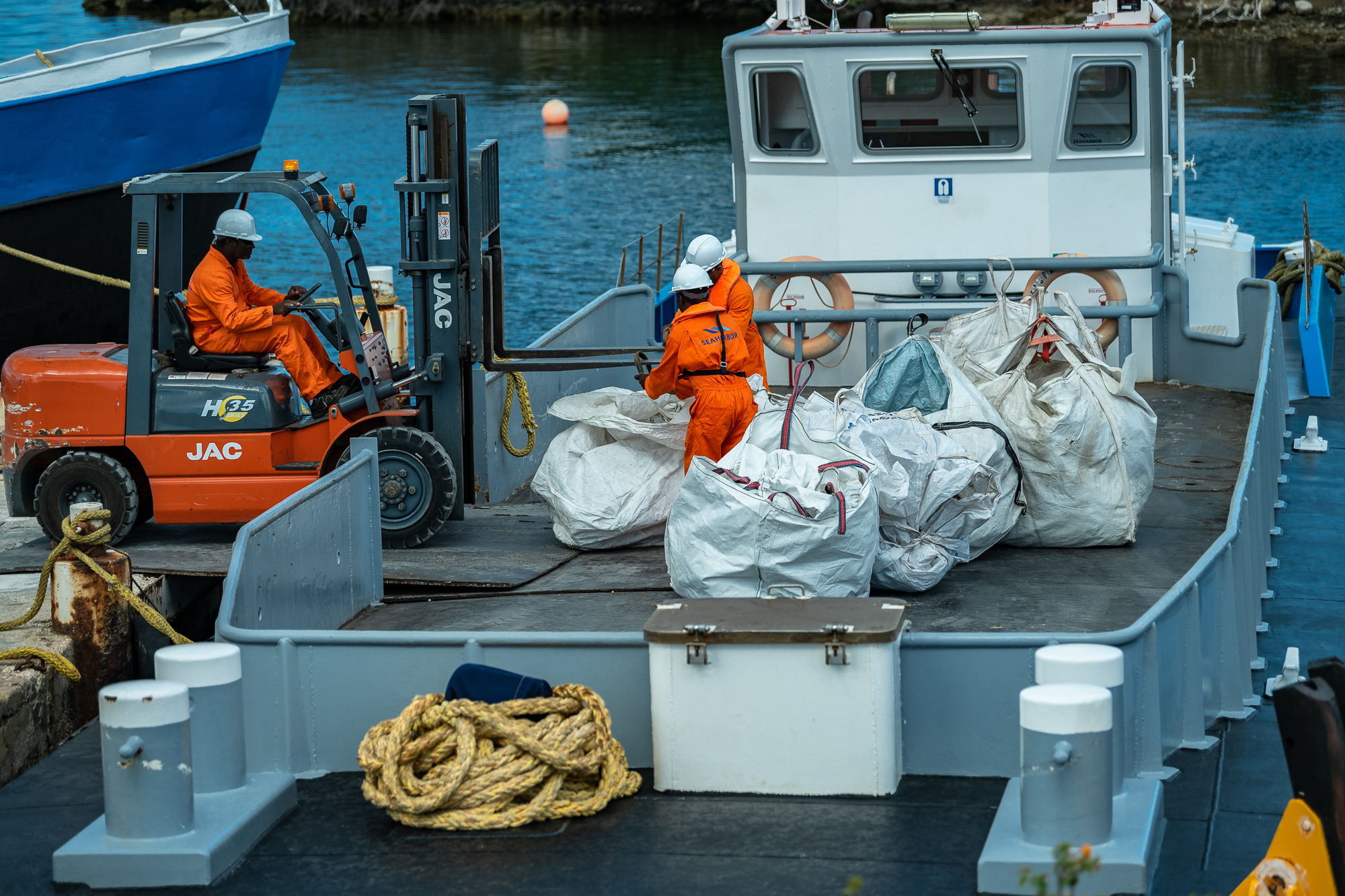Ship-Generated Waste Management in Nigeria – Ensuring Compliance and Environmental Safety
With Nigeria’s maritime sector growing in size and complexity, managing ship-generated waste has become a critical environmental and regulatory concern. From international cargo vessels to offshore support ships and naval fleets, every vessel operating in Nigerian waters is responsible for disposing of waste according to MARPOL and local environmental laws.
This article examines the state of ship-generated waste management in Nigeria, the regulations governing it, the types of waste involved, and how Wigmore Trading supports compliant waste handling through logistics, equipment sourcing, and port infrastructure services.
What Is Ship-Generated Waste?
Ship-generated waste refers to any waste produced during the normal operation of a vessel. Under the International Convention for the Prevention of Pollution from Ships (MARPOL), ship waste is classified into several categories:
1. Oily Waste (Annex I)
Includes bilge water, oil sludge, and waste lubricants from engine rooms. Requires proper segregation, treatment, and offloading at port reception facilities.
2. Noxious Liquid Substances (Annex II)
Primarily relevant for chemical tankers, this includes cargo residues and cleaning agents.
3. Harmful Substances in Packaged Form (Annex III)
Items such as expired chemicals, batteries, or toxic substances stored onboard.
4. Sewage (Annex IV)
Black water from toilets and medical facilities, which must be treated or safely offloaded.
5. Garbage (Annex V)
Food waste, plastics, packaging materials, and other solid refuse generated by the crew.
6. Air Pollution and Emissions (Annex VI)
Although not physically collected, this includes emissions regulations for fuel and exhaust systems.
Regulatory Environment in Nigeria
Nigeria enforces ship-generated waste regulations through both international and national frameworks:
-
NIMASA (Nigerian Maritime Administration and Safety Agency): The lead agency for MARPOL enforcement, vessel inspection, and monitoring of Port Reception Facilities (PRFs).
-
Federal Ministry of Environment / NESREA: Ensure proper environmental protection measures for waste disposal.
-
Nigerian Ports Authority (NPA): Manages port waste reception facilities and contractor oversight.
-
Licensed Waste Management Firms: Collect and treat waste in compliance with MARPOL and Nigerian law.
Vessels operating in Nigerian waters must log and report waste generation and discharge activity, with failure to comply resulting in fines, detention, or blacklisting.
Challenges in Nigeria’s Ship Waste Management
-
Insufficient Port Reception Facilities (PRFs) in some smaller ports
-
Delay in waste barge clearance and logistics bottlenecks
-
Lack of onboard waste treatment systems on older vessels
-
Non-compliance due to knowledge gaps or cost-cutting
-
Illegal dumping offshore due to poor enforcement in some zones
Wigmore Trading’s Role in Ship Waste Management
Wigmore Trading provides vital support to port operators, shipowners, and marine waste contractors by offering equipment, infrastructure, and logistical solutions that enable clean and compliant operations.
1. Sourcing Waste Collection and Treatment Equipment
We supply:
-
Marine oil-water separators
-
Sewage treatment plants
-
Garbage compactors and shredders
-
Holding tanks and spill containment tools
2. Supply Chain Support for Waste Handling Contractors
We deliver transfer hoses, PPE, marine-grade storage drums, labeling kits, and environmental monitoring tools to licensed waste firms working across Nigerian ports.
3. Support for PRF Infrastructure
We assist port authorities and developers with:
-
Waste barge outfitting
-
Mobile waste collection stations
-
Fuel-safe and chemical-safe storage units
-
Solar-powered waste processing systems for remote or modular ports
4. MARPOL Documentation Tools
Wigmore Trading offers MARPOL waste record books, placards, signage, and log templates for vessels to maintain regulatory compliance.
5. Customs Clearance and Delivery
We manage the importation and inland logistics of all waste management tools and components, ensuring timely delivery to port or offshore platforms.
Get in touch with Wigmore Trading to streamline your ship waste management operations in Nigeria.
Conclusion
Effective ship-generated waste management is not just about protecting the marine environment—it’s also a matter of legal compliance and operational efficiency. As Nigeria aligns its port operations with global environmental standards, the need for reliable infrastructure, compliant equipment, and capable logistics is growing.
Wigmore Trading proudly supports this mission by equipping shipowners, waste contractors, and port operators with everything they need to meet international and Nigerian marine waste management standards.








Comments are closed.